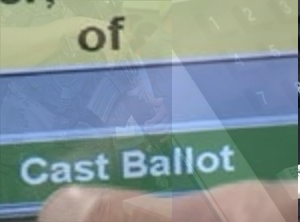 This is the second part of my comments on the NYT/CBS poll (Sept. 10-14, 2010), which gives an indication of what is actually on the mind of registered voters or was when this “snapshot” was made.
This is the second part of my comments on the NYT/CBS poll (Sept. 10-14, 2010), which gives an indication of what is actually on the mind of registered voters or was when this “snapshot” was made.
President Obama: The president’s approval rating (at 45%) has been quite stable all year. But the president may find it disappointing to learn how far his party must go to persuade the public of two of its greatest achievements: the economic stimulus and health care reform.
Though 35% of respondents on the poll said that since taking office Obama’s administration has “made real progress on fixing the economy,” 60% said it has not made real progress. Nearly half (46%) said the federal stimulus had: no impact” on the economy. Most respondents do not blame Obama (5%) for the recession, though. They blame the Bush administration (37%), Wall St. (21%), Congress (11%) and a combination (11%). The only upside for Democrats on this issue is a weak one: When asked “who is doing more to improve the economy,” respondents said Obama (48%) compared to Republicans in Congress (28%).
On health care, 49% of respondents disapproved the health care reform law either somewhat or strongly; 40% of those who disapproved also said it should be repealed. Yet the number for repeal is not firm: When the same 40% were asked whether the law should be repealed “if insurance companies would no longer be required to cover people with existing medical conditions or prior illnesses,” which would likely happen in the event of a repeal, 16% said no, it should not be repealed then; only 19% persisted in supporting repeal. Is this the Tea Party again? The data do not answer that question. It just shows the repeal group being cut in half.
The Democrats have their work cut out for them, convincing voters that they have made economic progress and that health care is good for the nation. Locally, incumbents will have to work to convince voters in either party that they deserve to stay in office. It is interesting, however, that when asked if they would support a Congressional candidate who voted for the federal stimulus or the health care bill, respondents said it mattered little: 57% said a vote for the stimulus made “no difference”; 41% said “no difference” and those would more/less likely cancel each other out at 28% for each.
While 63% of respondents found Obama’s performance “about what they expected,” 57% think the President “has no clear plan for solving the country’s problems,” compared with just 39% who think he does. Republicans, however, fared much worse: 72% of respondents said their party had no clear plan. So Republicans may want to develop a plan or convince voters they can develop one.
Tax cuts: Respondents did support (53%) letting the Bush tax cuts expire “for those earning more than $250,000,” but 38% thought it was a bad idea. I find the 53% lower than I would have expected.
The wars: Americans are increasingly dissatisfied with the wars. Asked if the Iraq war was “worth the loss of American lives,” nearly three-quarters (71%) of respondents said it was not, which is up significantly from 45% in 2003. Regarding the war in Afghanistan, respondents are divided: 54% said the U.S. should not be involved; 55% said the war is going somewhat or very badly for the U.S.
Muslims: The poll even asked questions about attitudes toward Muslims. Asked whether it is “likely that Arab, Muslim and Middle East immigrants were being singled out unfairly,” 71% of respondents said it was very or somewhat likely. The public, it seems to me, acknowledges current prejudice against Muslims. Yet only about half said they know a Muslim personally. Only 23% said they had a close friend who was Muslim; another 27% said they knew a Muslim but were “not close”; 49% said they do not know anyone who is Muslim.







